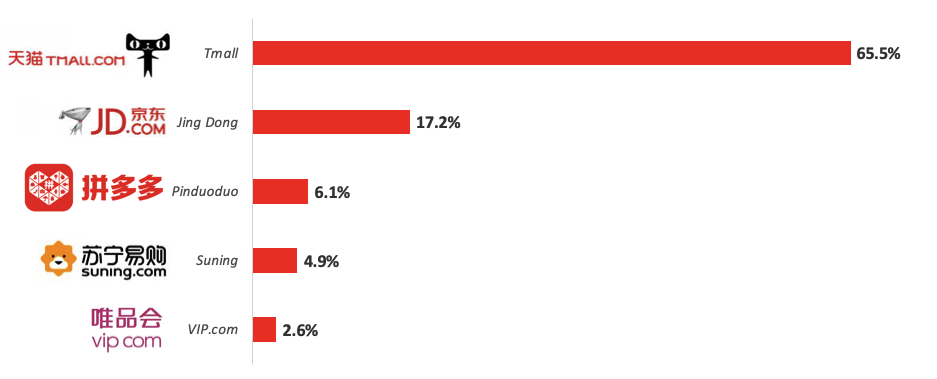Another year, another record-breaking Double 11 or as most of you might now it, Singles Day.
China’s overall e-commerce sales during the e-commerce extravaganza of Double 11 increased more than 30% year on year to RMB 410.1 billion ($58.56 billion) across platforms such as Tmall, JD, Suning, and Pinduoduo, according to reports citing data from China-based data services company Syntun.
We know you’re probably drowning in Singles Day-related statistics, but here’s a quick breakdown of how each platform performed:
- Alibaba Group transacted RMB 268.4 billion ($38 billion) in gross merchandise volume (GMV) across Tmall, Tmall Global and Taobao.
- JD recorded RMB 204.4 billion ($29 billion) in GMV.
- Pinduoduo has kept tight-lipped about Singles Day data, but Syntun data shows it has overtaken Suning.com as the third-largest online sales platform during the festival, after Alibaba and JD.

However, we here at AgencyChina would encourage you to look beyond the eye-popping figures and use other lenses to appraise Singles Day.
What follows is some thoughts from our e-commerce team, who manage flagship stores across Alibaba’s Tmall and Taobao, JD and Kaola in some of the most competitive e-commerce categories.
1. Singles Day Unlocks New Consumers
Let’s imagine that we’re selling electric toothbrushes. For argument’s sake, let’s say we know there are around 4 million people who have purchased electric toothbrushes online.
During Singles Day, we see an additional 2 million customers who have never bought an electric toothbrush online buy one for the first time. That increases the number of online customers in the category by 50%.
What we want to say here is, massive sales events like 618 and Singles Day generate millions of orders from customers who are familiar with the product category and know what they want, as well as millions more who are using deep discounts to enter the category for the first time. Expanding the pie benefits all players in the category, big and small.
Just take Unilever as example, Executive Vice President of Unilever North Asia, Rohit Jawa, was reported saying “Close to 70% of our users during Singles Day are new and almost a third of our penetration growth comes in just this event.”
2. Singles Day Boosts Consumer Lifetime Value
Let’s say that we’ve got a captive audience and relatively loyal consumer base, but we want to increase how often they repurchase and the amount they transact with us. Singles Day is a great way to test what bundles, offers, packaging and price points work to win consumers’ hearts and wallets, in turn increasing consumer lifetime value to brands.
3. Singles Day Gives Forward-Looking Indicators on What Consumers Want
In and amongst the endless amount of numbers Singles Day yields, category-related search volumes show where consumers tastes and preferences are heading. Notice a spike in searches for vegan skincare? Or maybe a tripling of the amount of folks who are buying through livestream? These are all clues as to where things are headed, and brands should explore and execute accordingly, either by themselves or with the help of their TP (trade partner) or Marketing agency.
4. Singles Day Highlights Strengths and Weaknesses in e-Commerce Operations
Singles Day is a little like the Olympics for brands in China – a test of strength, skill, courage and determination, as well as the opportunity to see the competition up close. For that reason, Singles Day’ allows brands to assess how healthy their sales funnel is, and how online demand generation and capture can be improved.
So, if you’re still thinking about Singles Day or Double 11 as a massive sale and a chance to clear inventory, we’d (very politely) say that you need to consider a broader range of factors. Then, and only then, can you truly appreciate what the fuss is all about.
If you’d like to know more about how to get your e-commerce operations in China roaring to life, get in touch to schedule a free consultation.



